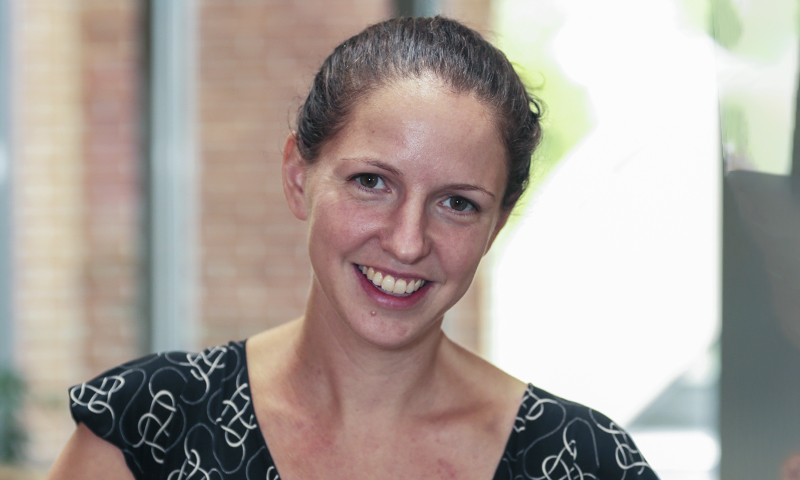
Diana Baker

Diana BakerAssociate Professor of Educational Studies
Joined faculty in 2014
- PhD in Curriculum and Instruction, Boston College
- MS in Applied Behavior Analysis, Northeastern University
- BA in Anthropology, Haverford College
Contact Information
Scholarly Interest
- Special education
- Autism
- The intersection of language, culture, and disability
- Nuerodiversity
Teaching Experience
Special Education Teacher (autism) 2005-2010, The May Institute & Merrimack Special Education Collaborative
Special Education Assistant Teacher (autism & emotional and behavioral disabilties) 2002-2004, Boston Public Schools
Teacher (English as a foreign language) 2001-2002, Peace Corps Morocco
Courses Taught
- Narratives of Disability (FSEM 162)
- Children with Disabilities (EDUC 203)
- Understanding Autism (EDUC 221)
- Learning Disabilities and Education (EDUC 336)
- Educational Research (EDUC 420)
Teacher Education Program Seminars
- Teaching Elementary and Secondary Students with Disabilties (EDUC 072)
- Collaboration and Management (EDUC 074)
Publications
- Baker, D., McCabe, H., Kelly, M., and Jiang, T. (2020). “’100 Years from Now’: A Cross-Cultural Comparison of Parental Perspectives about Supports for Adults with Autism in the United States and China.” Advances in Autism DOI: 10.1108/AIA-10-2019-0034
- Carrero, K., Baker, D. Fuller, M. (2019). “Working with Diverse Students” in Educating Students With Intellectual Disability and Autism Spectrum Disorder, Book 2: Foundational Concepts for Leadership and Collaboration
- Baker, D., Ackerman, L., Pohl, P., and Kim, H. (2019). “Somali-American Boys with Autism: Examining Three Educational Transitions Through Capital Theory.” Journal of International Special Needs Education.
- Baker, D., Roberson, A., and Kim, H. (2018). “Autism and Dual Immersion: Sorting Through the Questions.” Advances in Autism.
- Baker, D., & Kim, H. (2018). “Unsettling the resettled: An intersectional analysis of autism in the Somali diaspora.” Review of Disability Studies: An International Journal 14 (1).
- Baker, D. (2017). “The language question: Considering three Somali-American students with autism.” Multiple Voices for Ethnically Diverse Exceptional Learners 17 (1), 20-38.
- Baker, D., and Scanlon, D. (2016). “Student perspectives on academic accommodations.” Exceptionality 24 (2), 93–108.
- Minahan, J., and Baker, D. (2015) “The skill-building lens: Helping students with challenging behaviors.” Educational Leadership 73 (2), 68–72.
- Higgins-Averill, O., Baker, D., and Rinaldi, C. (2014). “A blueprint for effectively using RTI intervention block time.” Intervention in School and Clinic 50 (1), 29–38.
- Baker, D. (2013). “Particular polyglots: Multilingual students and autism.” Disability & Society 28 (4), 527–541.
- Scanlon, D., and Baker, D. (2012). “An accommodations model for the secondary inclusive classroom.” Learning Disability Quarterly 35 (4), 212–224.
- Dudley-Marling, C., and Baker, D. (2012). “The effects of market-based school reforms on students with disabilities.” Disability Studies Quarterly 32 (2).
- Peck, A., Albrecht, S. F., George, C. L., Mather, S. R., Paget, M., Ryan, J. B., White, R. B., and Baker, D. (2012). “Reflections on the future of the Council for Children with Behavioral Disorders: A response to Colvin, Forness, and Nelson.” Behavioral Disorders 37 (2) 123–125.
- Peck, A., Albrecht, S. F., George, C. L., Mather, S. R., Paget, M., Ryan, J. B., White, R. B., and Baker, D. (2011). “New directions for CCBD? Three studies examining the future of the organization.” Behavioral Disorders 37 (1) 30–41.
PROFESSIONAL AFFILIATIONS
- The Council for Exceptional Children (CEC)
- The American Edcuational Research Association (AERA)
- International Society for Autism Research (INSAR)
- Board Ceritified Behavior Analyst (BCBA)
